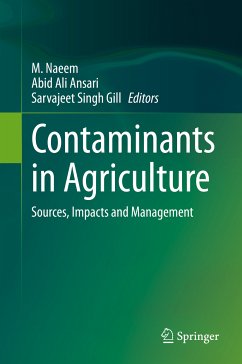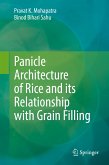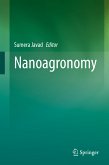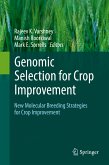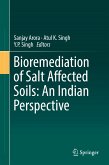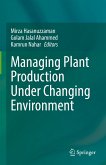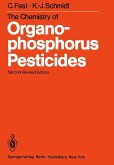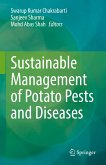This comprehensive volume covers recent studies into agricultural problems caused by soil and water contamination. Considering the importance of agricultural crops to human health, the editors have focused on chapters detailing the negative impact of heavy metals, excessive chemical fertilizer use, nutrients, pesticides, herbicides, insecticides, agricultural wastes and toxic pollutants, among others, on agricultural soil and crops. In addition, the chapters offer solutions to these negative impacts through various scientific approaches, including using biotechnology, nanotechnology, nutrient management strategies, biofertilizers, as well as potent PGRs and elicitors. This book serves as a key source of information on scientific and engineered approaches and challenges for the bioremediation of agricultural contamination worldwide.
This book should be helpful for research students, teachers, agriculturalists, agronomists, botanists, and plant growers, as well as in the fields of agriculture, agronomy, plant science, plant biology, and biotechnology, among others. It serves as an excellent reference on the current research and future directions of contaminants in agriculture from laboratory research to field application.
Dieser Download kann aus rechtlichen Gründen nur mit Rechnungsadresse in A, B, BG, CY, CZ, D, DK, EW, E, FIN, F, GR, HR, H, IRL, I, LT, L, LR, M, NL, PL, P, R, S, SLO, SK ausgeliefert werden.

